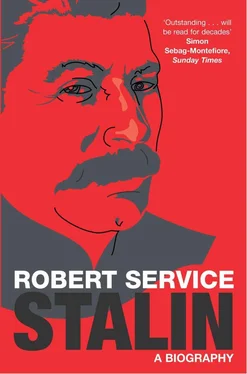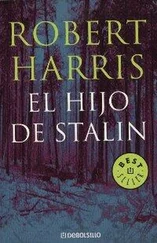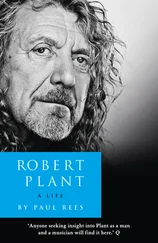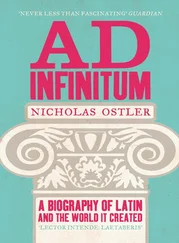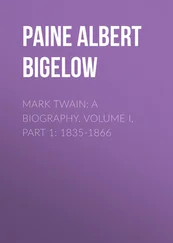Bulgakov, Mikhail: decline and death; The Days of the Turbins ; The Master and Margarita
Bulganin, Marshal Nikolai: and women; membership of Politburo; beard; Stalin suspects of conspiracy; in Presidium; fears Stalin’s disfavour; Stalin entertains; and Stalin’s stroke
Bulgaria: Soviet demands on; in eastern bloc; monarchy removed; communist dominance in
Bulletin of the Opposition (Trotski’s)
Catherine II (the Great), Empress of Russia
Caucasian Bureau
Caucasus: ethnic and national problems in; grain shortages; famine
Central Committee: Stalin elected to; expanded; Zinoviev seeks to return to; and Lenin’s revolutionary demands; pre-October revolution meetings; reluctance to negotiate separate peace in First World War; Lenin seeks control of; disagreements in; reorganisation and composition; joint meetings with Central Control Commission; plenum sanctions attack on Bukharin; International Department; and succession to Stalin
Central Control Commission: organisation and composition; Stalin controls
Charkviani, Kote
Chavchavadze, Ilya
Chayanov, Alexander
Cheka (Extraordinary Commission for the Struggle with Counterrevolution and Sabotage): formed; control of
Chernov, Viktor
Chervenkov, Valko
Chiang Kai-shek
Chiaureli, Mikhail
Chicherin, Georgi
Chichinadze, Zakaria
Chikobava, Arnold
China: Soviet relations with; Japan invades; and Soviet entry into war against Japan; communists seize power in; treaty with USSR (1945); economic dependence on USSR; as rival to USSR; intervention in Korean War; potential war with USA; rift with Khrushchëv’s USSR; Stalin’s posthumous reputation in
Chinese Communist Party
Chkheidze, Nikolai
Chkhenkeli, Akaki
Chou En-lai
Chukovski, Kornei
Churchill, (Sir) Winston: warns Stalin of German invasion of USSR; condemns Nazi atrocities; Stalin entertains; meets Stalin at Tehran; broadcasts; view of Stalin; offers wartime assistance to USSR; wartime travels; relations with Stalin; ‘percentages agreement’ with Stalin in Moscow (1944); and post-war European settlement; at Yalta Conference; and Soviet inaction during Warsaw rising; and prospective capture of Berlin; at Potsdam Conference; loses 1945 election and premiership; Stalin’s regard for; Stalin accuses of resentfulness; Fulton ‘iron curtain’ speech; commitments to Stalin; speeches reproduced in Moscow; sends condolences on Stalin’s death
cinema: Stalin’s interest in
Circle, Operation
Civil War (1918–19)
Cold War: beginnings; intensifies; causes budgetary strains
collectivisation: peasant deaths under; Stalin introduces; and tractor supply; spread of; percentage of households in; of Cossacks; resistance to; of Kazakhs and Ukrainaians; post-war in eastern Europe
Comecon (Council for Mutual Economic Assistance): formed
Cominform (Informational Bureau): First Conference (1947); hostility to; Second Conference (1948)
Comintern (Communist International): formed; and proposed German rising; in Asia; expansion; and China; Sixth Congress (July 1928); and Stalin’s European policy; Stalin dominates1; Dimitrov appointed to head Executive Committee; campaign against ‘rightism’; and German threat; Stalin criticises for being over-centralised; and Spanish Civil War; purged; and Chinese Communist Party; weakness; dissolved
communism: weakness outside USSR; as worldwide movement; post-war spread; in east European countries
concentration camps; see also Gulag
Congress of Peoples of the Terek (1920)
Congress of Soviets: Second (1917); Third (1918)
Congress of Writers, First (1934)
Conquest, Robert
Constitutional-Democratic Party (Kadets): organisation and doctrines; in Provisional Government; leaves Provisional Government; Stalin attacks; ceases political activity
Cossacks: in Civil War; Stalin’s hostility to; in Caucasus; collectivisation
Council of Ministers ( formerly Sovnarkom),
Council of People’s Commissars see Sovnarkom
Crimea: in war with Germany
culture: Stalin’s attitude to and interest in
‘curators’
Curzon, George Nathaniel, Marquess,
Curzon Line
Czechoslovakia: Stalin woos; Germany annexes; hostility to USSR; and Marshall Aid; communist weakness in; democratic tradition; communists achieve dominance in
Darien (Dalni)
Dashnaks
Davitashvili, M.
Davrishevi, Damian
Davrishevi, Joseph
Davydov (Georgian police agent)
Deborin, Abram
Democratic Centralists
Democratic State Conference (1917)
Denikin, General Anton
Department of Agitation and Propaganda (Central Committee)
Deutscher, Isaac
Dimitrov, Georgi: flatters Stalin; Stalin appoints to head Executive Committee of Comintern; and Nazi threat; and Stalin’s foreign policy; and treatment of foreign communist parties; and abolition of Comintern; as Prime Minister of Bulgaria; and Stalin’s underestimation of China
Diomidis, Alexandros
Djilas, Milovan
doctors (medical): purged
Doctors Plot
Dolgoruki, Prince Yuri
Don Basin: seized by Germans
Dostoevski, Fedor
Dubrovinski, Innokenti
Duclos, Jacques
Dukhobors (religious sect)
Duma (State): proposed; socialist contingent in; Mensheviks exploit; Fourth; dispersed (February 1917)
Dzeradze, Mikhail
Dzhibladze, Silva
Dzhughashvili family
Dzhughashvili, Besarion (Vissarion; Stalin’s father): and Stalin’s birth and childhood; violence; and Stalin’s schooling; death; Stalin’s attitude to
Dzhughashvili, Ketevan (née Geladze; Stalin’s mother; ‘Keke’): and Stalin’s birth; marriage; character and rumoured profligacy; and Stalin’s upbringing and education; works as seamstress; Stalin’s attachment to; Stalin’s separation from; refuses to move to Moscow; Stalin visits; mentioned in Pravda
Dzhughashvili, Ketevan (née Svanidze; Stalin’s first wife): Stalin courts and marries; birth of son; death
Dzhughashvili, Yakob (Stalin’s son by Ketevan): birth; fostered by inlaws at mother’s death; Stalin’s separation from; Stalin visits as youth; home life with Stalin and Nadya; attempted suicide; as prisoner-of-war; shot by Germans
Dzhugheli, Severian
Dzierzyński, Felix: Stalin attacks on national question; employs state terror methods; co-writes report with Stalin on party/state institutions; in Lenin’s Testament; and Lenin’s health decline; at Lenin’s funeral; as head of GPU; and threat of rival parties; relations with Stalin; and Stalin’s vengefulness
Eastman, Max
Eden, Anthony
Egnatashvili, Yakob
Ehrenburg, Ilya
Eisenhower, General Dwight D.
Eismont, Nikolai
Eizenshtein, Sergei
El-Registan, Garold
Emancipation Edict (1861)
Engels, Friedrich
Enukidze, Abel
Eristavi, Count Rapael
Eshba, Yefrem
Estonia: revolutionary unrest in; resists Soviet expansionism; as Soviet republic; reclaims independence; Stalin demands and occupies; Germans conquer; reannexed by USSR; Stalin’s post-war aims in; armed resistance in; deportations from; see also Baltic states
Ethiopia
Europe: post-war settlement negotiated; east under Soviet control; Marshall Aid for; economic policy in east; national independence in east; effect of Khrushchëv’s Stalin denunciation in east
Fadeev, Alexander; The Young Guard
famines,
Fascism
Finland: hostility to Russia; self-rule proposed for; secedes from Russia (1918); as potential invader of USSR; Soviet war with (1939–40)
Five-Year Plans: First; Second
forced labour; see also Gulag; labour camps
Читать дальше
